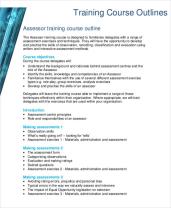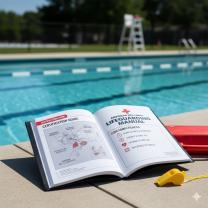Which online course is best?
Selecting the best online course depends on your individual goals, preferences, and the specific skills or knowledge you want to acquire. Here are some considerations and recommendations to help you choose the best online course for your needs:
Define Your Goals:
- Clearly define your learning objectives. What skills or knowledge do you want to gain from the online course? Understanding your goals will guide you in finding a course that aligns with your needs.
Research Reputable Platforms:
- Explore reputable online learning platforms that offer a diverse range of courses. Platforms like Coursera, edX, Udacity, Skillshare, and LinkedIn Learning are known for providing quality courses from reputable institutions and instructors.
Read Course Descriptions and Reviews:
- Read detailed course descriptions to understand the content, structure, and learning outcomes. Additionally, look for reviews or testimonials from previous learners to gain insights into the course's effectiveness and relevance.
Check Instructor Credentials:
- Review the credentials of the course instructor or instructors. Look for instructors with relevant expertise, professional experience, and academic qualifications in the subject matter.
Look for Accreditation:
- If the course offers a certification or credential, check whether the issuing institution is accredited. Accreditation adds credibility to the certification and ensures that the course meets certain quality standards.
Consider Course Format and Structure:
- Evaluate the course format and structure. Some courses are self-paced, allowing you to learn at your own speed, while others follow a scheduled format with specific start and end dates. Choose a format that fits your learning style and schedule.
Assess Learning Resources:
- Check the learning resources provided, such as video lectures, readings, assignments, and assessments. High-quality courses often include a variety of resources to cater to different learning preferences.
Check Prerequisites:
- Verify whether the course has any prerequisites or recommended background knowledge. Ensure that you have the necessary skills or understanding to benefit from the course content.
Explore Free Course Options:
- Many platforms offer free versions of courses or provide free trials. Explore these options to get a sense of the course content, teaching style, and overall quality before committing to a paid course.
Consider Industry Recognition:
- If the course is related to a specific industry or profession, check whether it is recognized by relevant industry associations or employers. Some courses have industry endorsements that add value to the certification.
Look for Interactive Elements:
- Courses with interactive elements such as quizzes, forums, and assignments can enhance the learning experience. Consider whether the course provides opportunities for hands-on practice and interaction with instructors or peers.
Check for Lifetime Access:
- Some courses offer lifetime access to course materials even after completion. This can be beneficial for future reference and ongoing learning.
Explore Additional Support:
- Check whether the course provides additional support, such as discussion forums, Q&A sessions, or access to a community of learners. Supportive features can enhance the learning experience.
Budget Considerations:
- Consider your budget when selecting an online course. Some platforms offer financial aid, scholarships, or installment plans. Also, check if the course provides a certificate of completion and whether it incurs additional costs.
Verify Technical Requirements:
- Ensure that your computer and internet connection meet the technical requirements of the course. Check for any software or hardware prerequisites and verify compatibility.
Remember that the "best" online course is subjective and depends on your individual needs. Take the time to research and choose a course that aligns with your goals, preferred learning style, and budget. Additionally, consider the reputation of the platform, the quality of instructional content, and the overall learning experience offered by the course.
What criteria determine the best online course in a particular subject?
Choosing the best online course in a particular subject can be challenging, with numerous options available. Here are some key criteria to consider:
Course Content and Structure:
- Relevance and Alignment: Ensure the course content aligns with your specific learning goals and covers relevant topics within the subject.
- Depth and Breadth: Evaluate the depth of content offered and assess whether it provides sufficient detail and comprehensive coverage of the subject.
- Structure and Organization: Assess the course's structure, including module organization, lesson sequencing, and clarity of learning objectives.
- Updated Content: Ensure the course content is current and reflects the latest advancements and knowledge within the subject.
Instructor Expertise and Qualifications:
- Credibility and Experience: Research the instructor's background, qualifications, and expertise in the subject matter.
- Teaching Style and Engagement: Evaluate the instructor's teaching style, their ability to explain complex concepts clearly, and their engagement with students.
- Availability and Support: Consider the instructor's availability for questions and support throughout the course.
Learning Platform and Delivery:
- User-Friendly Interface: Assess the ease of navigation and user-friendliness of the learning platform.
- Accessibility Features: Evaluate whether the platform offers accessibility features for diverse learners.
- Multimedia Integration: Consider the use of multimedia elements like videos, interactive activities, and quizzes to enhance the learning experience.
- Mobile Compatibility: Check if the platform is accessible and optimized for mobile devices.
Student Support and Community:
- Availability of Support Services: Evaluate the availability of technical support, academic guidance, and career counseling services.
- Student Community and Interaction: Consider the platform's features for interaction and collaboration among students, such as discussion forums and online groups.
- Feedback and Assessment: Evaluate the course's assessment methods and opportunities for feedback to ensure effective learning outcomes.
Cost and Value:
- Pricing and Transparency: Compare the course fees with other options and assess the value proposition based on the content, instructor expertise, and learning platform features.
- Payment Options and Refund Policy: Check for flexible payment options and a clear refund policy in case of dissatisfaction.
- Financial Aid and Scholarships: Explore potential financial aid options or scholarships offered by the platform or the instructor.
Additional Considerations:
- Accreditation and Recognition: Consider whether the course is accredited by a recognized institution or organization.
- Reputation and Reviews: Research the course's reputation and student reviews to gain insights into the learning experience.
- Free Trial or Demo: Look for opportunities to experience the platform and course content through a free trial or demo before committing.
By carefully considering these criteria, you can make an informed decision and choose the best online course that meets your individual needs, learning goals, and preferences in a particular subject.













